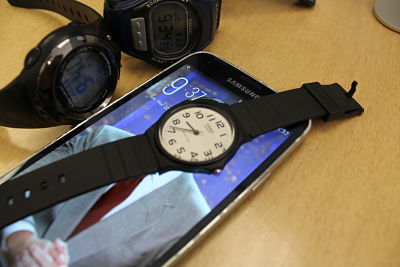The Bar-On Brief: We’re not all that special and we don’t deserve our own time zone
Daylight Saving may be unproductive, but California shouldn’t challenge it alone


As of today, Hawaii and Arizona are the only two states that have a static clock, free of daylight saving time (DST) year round.
California is pushing to be the third.
The California State Assembly received a bill last month attempting to ban DST in the state. We cannot pass such a bill alone. If at all, DST should be a national issue.
Before the questions come rolling in, let’s establish some background information.
The most modern application of DST was sparked by Germany during World War I. The country decided to implement a new standard time in the summer to conserve fuel for the war effort.
Much of Europe copied the German strategy during and following the war. The US followed suit in 1918 with the Standard Time Act. DST was repealed after the war, allowing each state to dictate their own clock schedule.
When World War II came along, President Roosevelt re-implemented the modified clock. In 1966 and 1972, after several years of disunity in the national time, the Uniform Time Act introduced the DST we have today. It gave states the opportunity to opt out of DST by passing their own legislation.
California has followed DST since the passing Proposition 12 in 1949. We were one of the first states to introduce a new system to the country. Repealing the 67-year-old legislation would send a loud message to the country. One that isn’t quite necessary at the moment.
Farmers and other outdoor workers tend to be the main opponents of DST due to their continuous exposure to sunlight. Workers may be asked to work longer hours, and the extra hour of sun, they argue, is detrimental to their health.
Moreover, combatants of DST claim studies are inconclusive about the energy consumption allegedly saved with a later sunset. When DST was invented, the industrial revolution dictated the majority of a nation’s energy usage. This is not the case in modern times.
After compiling the most prominent studies of DST energy saving, it can be concluded that the average household saves about $4 in the summer compared to in the winter. This is not all that much.
Human health is dependent on the clock as well. A Reuters study reports a significant increase in heart attacks and suicides on the Monday after Americans lose an hour of sleep.
Conversely, the heart attack and suicide rates drop the day after we gain an hour of sleep.
Despite all these reasons, California should not embark on a mission to change time solely within their borders.
Indeed, it is appropriate to debate the necessity of DST and possibly abolish it.
But changing the time in California alone would simply cause confusion. Confusion in travel times, television schedules, sports schedules and a variety of other unnecessary changes.
Ending DST should be a nationwide movement, one that fixes the whole country’s sleeping patterns and not just one state’s.
We’re not all that special, and we don’t deserve our own time zone.
And with that, I rest my case.








Tej Gokhale • Mar 23, 2016 at 10:49 pm
Once again – a very well-written opinion piece. I disagree, however, on the idea that California shouldn’t try to tackle this issue on its own. Change happens from the bottom up. Change happens from the grassroots and works its way up to the top. I think that if California acts as one of the pioneers in this fight then slowly the entire country will adapt. Look at some other issues in which this happened, most recently, marriage equality. States began to change their laws on this issue and it soon became the law of the land. Similarly, if we truly wish to see change, we need to take a stand in our own state first. Sure it may pose some inconveniences as of now, but hopefully we can spur the rest of the country to get its act together.